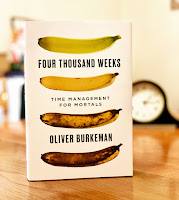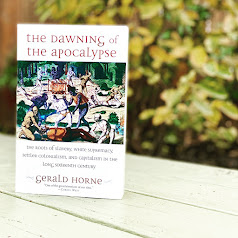 It's pretty clear that a lot of people don't understand the way that more extreme elements on the right try to build support for their agenda of harm and violence and a base to pursue it by organizing things like the anti-queer/anti-trans actions across the country last week and the convoy occupation last year. Not understanding how this works makes people more vulnerable to being taken in by the far right's efforts to disguise their agenda with lies and misinformation. (Of course there are also plenty of people who fully support the harm, but that's a different question.)
It's pretty clear that a lot of people don't understand the way that more extreme elements on the right try to build support for their agenda of harm and violence and a base to pursue it by organizing things like the anti-queer/anti-trans actions across the country last week and the convoy occupation last year. Not understanding how this works makes people more vulnerable to being taken in by the far right's efforts to disguise their agenda with lies and misinformation. (Of course there are also plenty of people who fully support the harm, but that's a different question.)
I'm no expert on this, and others have written about it on the basis of far greater expertise and far more extensive involvement in anti-fascist organizing than I've had, but it can't hurt to say some of these things again.
In Canada in the last decade or so, the more extreme elements of the right have generally organized by focusing on one central target at a time. At the moment, they are most visibly targeting trans and queer youth, though in some places they are also targeting unhoused people and people who use drugs. With the convoy, it was public health policies related to COVID. A few years before that, they were targeting Muslims and immigrants.
Their goal in doing this is to find narrow issues that will allow them to draw people in, build the base of people willing to listen to them, and push forward their political goals, while keeping their broader violent agenda obscured – not very deeply obscured, as organizations like the Canadian Anti-Hate Network and independent anti-fascist researchers consistently show how it is the same hard- and far-right networks behind all of these seemingly different initiatives, but obscured enough to keep sustained awareness out of the mainstream. In each instance, the narrow issue is chosen to have some sort of appeal to some broader segment of the population that does not (yet) hold far-right politics but that they hope in the future might be open to them. Generally speaking, whatever narrow agenda they are openly advocating will itself cause harm of some kind, usually to people who already face lots of harms, but they frame their positions in ways that deny that. And their actions are designed to create conditions that will advance the more obscured, broader agenda of harm.
To do all of this, the core organizers tell lots of lies, and the participants take up, believe, and reproduce those lies. If you look at the rhetoric coming out of the far-right-driven protests last week – on signs, in chants, in social media posts, and so on – you'll find a lot of different kinds of lies. There are, for instance, incredibly vicious lies about the lives of queer and trans youth and of queer and trans adults. There are lies about what is involved in gender-affirming care. And there are lies about what is happening in schools and about how schools work. For the most part, it is people who are already prejudiced against the targeted group who are most likely to be susceptible to these lies, though often they are in deep denial about their own investment in distorted and hateful understandings of queer and trans people. Some of these lies justify the policies that they are pushing, and some of them deny the harms that their policies would cause. And then there are other lies that deny that any of the narrow, openly admitted agenda is related in any way to the broader violent and harm-causing agenda being pushed by the core organizers and by a significant subset of participants.
Mobilizing a layer of people who are only interested in the narrowly harmful agenda – in this instance, the policy changes that would harm queer and trans youth – is a crucial component of building support and space to pursue other aspects of the broader harmful agenda. There were probably individuals at some of the anti-queer/anti-trans actions last week who could earnestly claim that they are 'just concerned about children' (though, again, even that is based on prejudice and lies, and on denial of the reality that the changes they are seeking would cause easily demonstrable harm to queer and trans youth). But those people have been assembled precisely because it is useful to those actively pursuing the larger and varied harmful agendas of the more extreme elements of the right. They are being organized into networks that strengthen the right's ability to mobilize in the future, and that will expose them to content that will nudge their politics ever rightward. And their presence provides cover to the many who are already more open about the broader harms they are trying to cause, and gives them rhetorical space to deny what they're up to.
Finally, it is also worth noting the role that the mainstream media plays in all of this. You will find good individual articles about queer and trans issues in general and about last week's actions in particular in mainstream sources. But you will also find articles, columns, and op/ed pieces that are terrible, that are filled with lies, and that downplay or outright deny the harms that the policies pushed by these actions would cause to queer and trans youth. This means that the impact of the mainstream media environment as a whole is to leave the right's lies and their denial of the harm that their agenda will cause at least partially unchallenged, which in turn creates further space for them to organize. At this point, this is more exaggerated in the US and the UK than in Canada – lie-filled anti-trans pieces have been a weekly if not daily occurrence in big newspapers in the UK for years now – but the way that mainstream media works means that the strength that the more extreme elements of the right demonstrated last week will also create more space for such things in media here.
Though turnout at the counter-actions in support of trans and queer youth was impressive in some places, the ability of the more extreme elements of the right to mobilize people is vastly greater than it was ten or even five years ago, and we underestimate the gravity of what we face at our peril.









